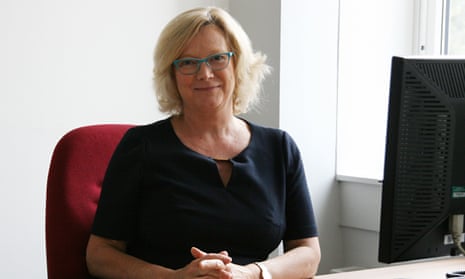Describe your role in one sentence: As chief executive my role is to provide leadership and strategic direction to the charity Freedom from Torture, supporting people who are survivors of torture and campaigning to stop torture.
Why did you want to work in healthcare? It is in my genes; I had a wonderful role model in my mother who was a nurse and social worker in Glasgow.
How do you want to see the sector change in the next five years? I want to see more collaboration and less competition, and mental health services given the same priority and resources as physical health.
My proudest achievement at work was ... I had the privilege of working for Marie Curie Cancer Care for 17 years and I am proud of the part I played in doubling the number of people able to achieve their wish to die at home.
The most difficult thing I’ve dealt with at work is ... not having enough money and resource to meet the needs of all torture survivors in the UK and having to turn people away who desperately need help and support.
The biggest challenge facing the NHS is ... Where do I start? The first challenge is the scale of change and upheaval we are currently going through; the second is the demographic time bomb; and finally the arbitrary division between health and social care.
The people I work with are ... inspirational because they are survivors of torture. I admire their dignity, resilience and optimism.
I do what I do because ... Freedom from Torture is a unique charity which brings together work with individuals and the ability to influence national and international policy on torture. We bring together three different areas of medico/legal work, psychological support and human rights work.
Sometimes people think that I ... am too passionate about my work. They are right! But my friends and family keep me grounded and real.
Right now I want to ... focus on providing services to our clients which are relevant, accessible, effective and sustainable.
At work I am always learning that ... from the experience of our clients, the human spirit is capable of overcoming the darkest of pasts and making a positive contribution to our society.
The one thing always on my mind at work is ... The need to do the best for our clients, but the truth is we need to raise a lot more money to provide the services our clients deserve, meanwhile we have to live within our means and up our game to generate more income.
If I could go back 10 years and meet my former self I’d tell them ... always listen to your inner voice and stay true to your values.
If I could meet my future self I’d expect them to be ... proud of the difference I was able to make to the experience of torture survivors in the UK.
What is the best part of your job? Meaningful engagement with our clients; I am always moved by their spirit of generosity despite their experiences and I learn something new from them every time.
What is the worst part of your job? The saddest thing about my job is that our asylum and welfare systems leave some victims of torture destitute. I am ashamed of this and I wish we could do more to prevent it.
What makes you smile? Freedom from Torture offices are filled with wonderful art work by our clients demonstrating their creativity, resilience and hope.
What keeps you awake at night? There are difficult choices and decisions to be made; I want and need to be sure I am making the right ones in the interests of our clients and the long-term future of the charity.
If you would like to feature in our “Five minutes with ...” series, or know someone who would, email healthcare@theguardian.com
Are you a member of our online community? Join the Healthcare Professionals Network to receive regular emails and exclusive offers.
